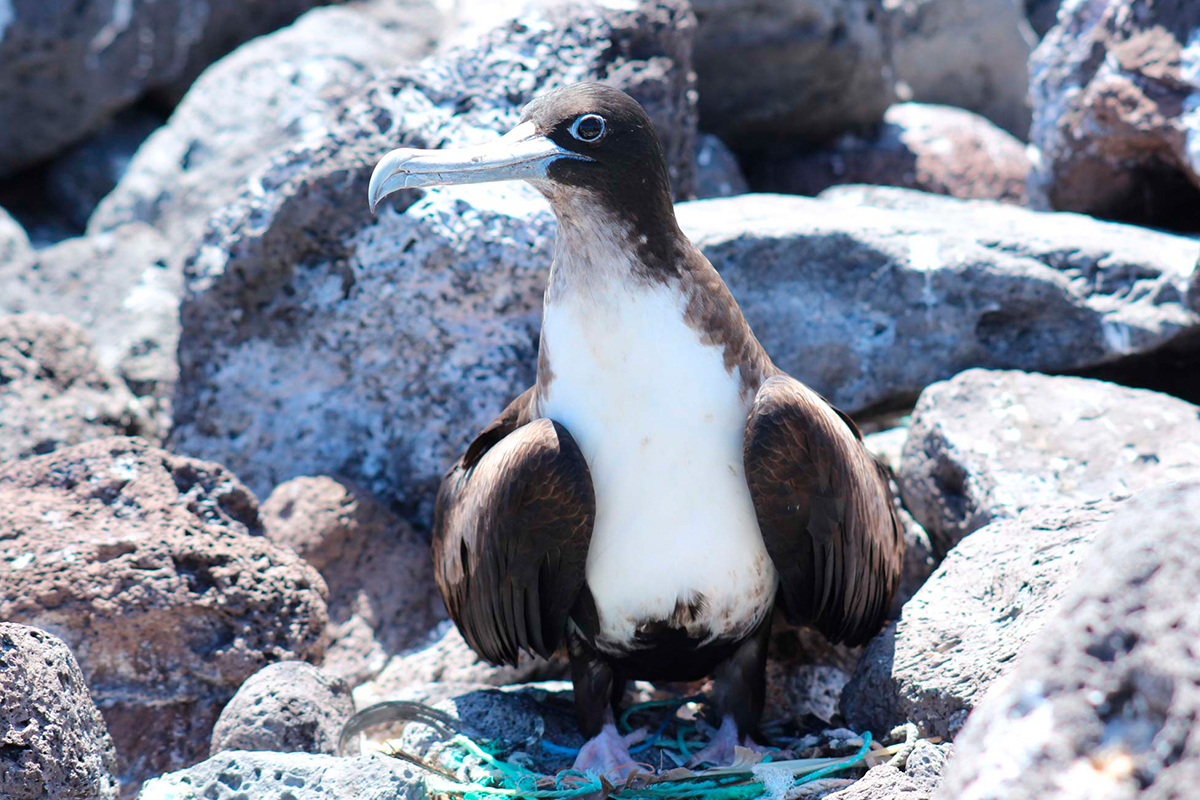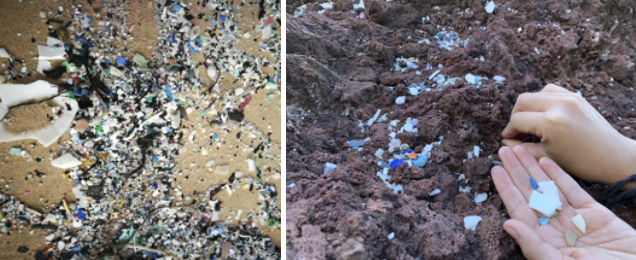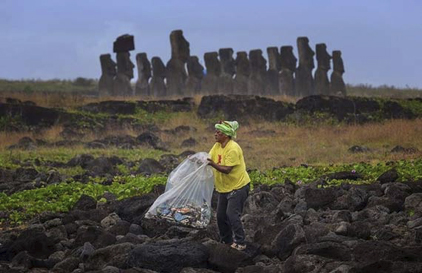When I moved to Easter Island three years ago, I started being more connected and more aware of the impacts we have on nature.
Rocio Arriagada: “How Ocean Pollution and Micro-plastic Contamination in Easter Island Has Affected Me”

Did you know that at least 8 million tons of plastic ends up in our oceans every year?1
Yes, this is a very concerning figure that clearly demonstrates how we are causing brutal harm to the marine ecosystem and the planet. As a young adult, I am concerned and I feel as if we are not taking responsibility for our actions, and that we are not conscious enough about the threat we pose to this planet.
As a human population, we are slowly destroying our home, our planet, and many of us are still not fully aware of this situation.

Source: www.moevarua.com
When I moved to Easter Island three years ago, I started being more connected and more aware of the impacts we have on nature and on our ecosystem. I have become increasingly concerned about many basic issues such as, where our waste will end up, how we get tap water, and how we generate electricity.
As a result, I have been incredibly worried about plastic and the harm it causes to the marine ecosystem. Even Easter Island, which is one of the most isolated islands in the world with very clear and clean waters, suffers from plastic pollution. In fact, our Pacific Ocean contains large amounts of micro-plastic waste that litter our shores and coastline on a daily basis and intoxicate our marine life.

Sources: Fundación Plastic Oceans Chile and www.plasticoceans.org
Over these last few months, I have seen numerous campaigns that have asked citizens to minimize plastic use in their daily lives such as, eliminating plastic bags when shopping. I completely agree with initiatives like this and I think they are a great starting point, however, it is not enough. In my opinion, the change must not only be made by the consumer, but instead, it must also come from the root of the cause — from industries and companies. That is, companies need to build a larger sense of environmental consciousness and awareness. To achieve this, it is necessary for governments to create laws and regulations that promote industry to reduce plastic production and dependance. By having government-run audits, for example, that regulate plastic consumption and waste, industries could have an easier transition towards environmental awareness which would also beneficially influence eco-friendlier consumerism.

Source: www.terram.cl
On a local level, I believe that in order to help minimize micro-plastic pollution, a law indicating that at least 5% of all new constructions be built with eco-walls or recycled materials would be a great way to begin. Given that buildings with these materials are slightly more expensive now, my idea is to start incorporating just a small percentage of recycled materials and to then increase it over the years. So that within the next twenty years, for example, we could facilitate a system where a larger percentage, such as 60%, of buildings are made with eco-walls or recycled materials. This would also be a great way to build upon and stimulate the local economy.
In conclusion, ocean littering is causing tremendous harm to our ecosystem and planet. Therefore, we need to start enforcing more impactful laws, regulations and initiatives that work at reducing plastic consumption, dependance and waste. These changes need to start being done by companies who are responsible for plastic production. Also, we need to reduce the amount of single-use plastics and begin looking for other eco-friendlier uses such as, incorporating more post-consuming plastics into our market. Finally, as a human race, we need to start educating more people to become more aware of the problems that the planet is suffering. Education is key towards creating effective and more permanent solutions that work towards minimizing the harm we are creating on our plant and to our species.
Author: Rocío Arriagada
Date written: October 20th, 2020
1 “Issues Brief: Marine Plastics”, Marine Plastics IUCN, https://www.iucn.org/resources/issues-briefs/marine-plastics, (13 October 2020).

